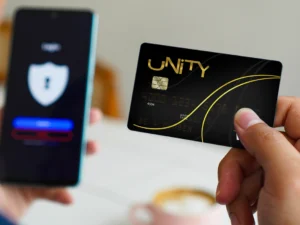Ah, don’t we love the summer vacation season? It’s a time of relaxation, adventure, and often a little splurging–or a lot. After returning home, your bank accounts remind you that you lost track of your budget or scold you for never having one!
Sometimes it takes a less-than-perfect financial experience to kick us back into shape. Implement our 8 steps to regain control of your finances and prepare for your next vacation & holiday season. Let’s dive in!

1. Asses the Impact
Before we dive into our budgeting master course, let’s first assess the financial impact your summer activities made. First, collect your bank statements and receipts of your purchases. Then, create a list of your summer expenses, and separate them into essential and non-essential categories.
2. Reflect on Your Priorities
Now that you know where your money went, it’s time to reflect on your financial priorities. Did your summer splurges align with your expectations? If your splurges are predominately in the miscellaneous, or non-essential, category, but bring joy, these can be your occasional indulgences. However, if you find that a majority of your expenses are almost always miscellaneous and not in the realm of responsibility, this is a perfect opportunity to realign your priorities.
Reflect on your essential and non-essential categories again after this process and make all necessary adjustments.
3. Set Realistic Financial Goals
With a fresh perspective on your financial priorities, it’s time to set new and achievable financial goals before your next vacation. Start by making your goals specific, measurable, attainable, relevant, and time-bound (SMART).
For example, saving $1,000 for your next vacation in six months is a SMART goal. After identifying what the funds are for, you can set a 6-month deadline for yourself, and then measure how to realistically attain the $1,000 within the timeframe, like saving $84 out of a bi-weekly paycheck.
Through the SMART approach, you can feel more confident about realistically reaching your goals. Once you reach your goals, use the positive momentum to set your goals higher and higher!
4. Create a Detailed Budget
Here’s the fun part: designing a budget that works for you! Grab your notebook or open your notes app, list your total monthly income, then categorize your expenses.
- Fixed expenses are costs that are recurring, like rent, utilities, insurance.
- Variable expenses are costs that fluctuate, like groceries, entertainment, and eating out.
Take your expenses and divide them into the two categories above. Next, use the budgeting function in Money Management to set and keep track of your spending. The best part about Money Management is easily seeing your transactions and your spending trends at a glance. This will help you identify where you can cut back and save.
5. Reduce Unnecessary Expenses and Build a Cushion
Trimming your budget doesn’t mean sacrificing everything you love. Identify areas where you can make small adjustments without feeling deprived. For example, if you usually eat out four times a week, try reducing it to two. You’ll not only save money but also savor those dining experiences even more.
You know yourself best. If you have a habit of overspending, build a cushion by opening a savings account!
6. Automate Your Savings
One of the most effective ways to save money towards your goals consistently is by automating your savings.
Once you have opened up your savings account, log into OneUnited Bank online banking, select Move Money, and then select External Transfers to set up a recurring deposit for an automatic savings plan.
These automatic transfers pull from your OneUnited Bank checking account to a separate savings account as soon as you receive your paycheck. That way, you won’t be tempted to spend the money meant for savings.
7. Seek Out Deals and Discounts:
Being on a budget doesn’t mean you can’t enjoy the occasional “treat yourself” moment. Look for deals, discounts, and loyalty programs for the things that bring you joy on your vacation. Whether it’s dining discounts, travel deals, or shopping bargains, a little research can go a long way in helping you stay within your budget. With our Rewards Suite, you earn cash back and points for exclusive gifts, discounts, and more when you use your debit card.
8. Track Your Progress:
Consistently track your progress and celebrate your financial victories, even the small wins. This positive reinforcement will keep you motivated to stick to your vacation budget and achieve your financial goals before setting out for your adventure!
Facing the aftermath of your summer indulgence may not seem like the most fun activity, however, your next vacation will thank you immensely. Remember, budgeting isn’t about restricting your life but about making mindful choices that align with your financial goals and values. Happy budgeting! #BankBlack


















